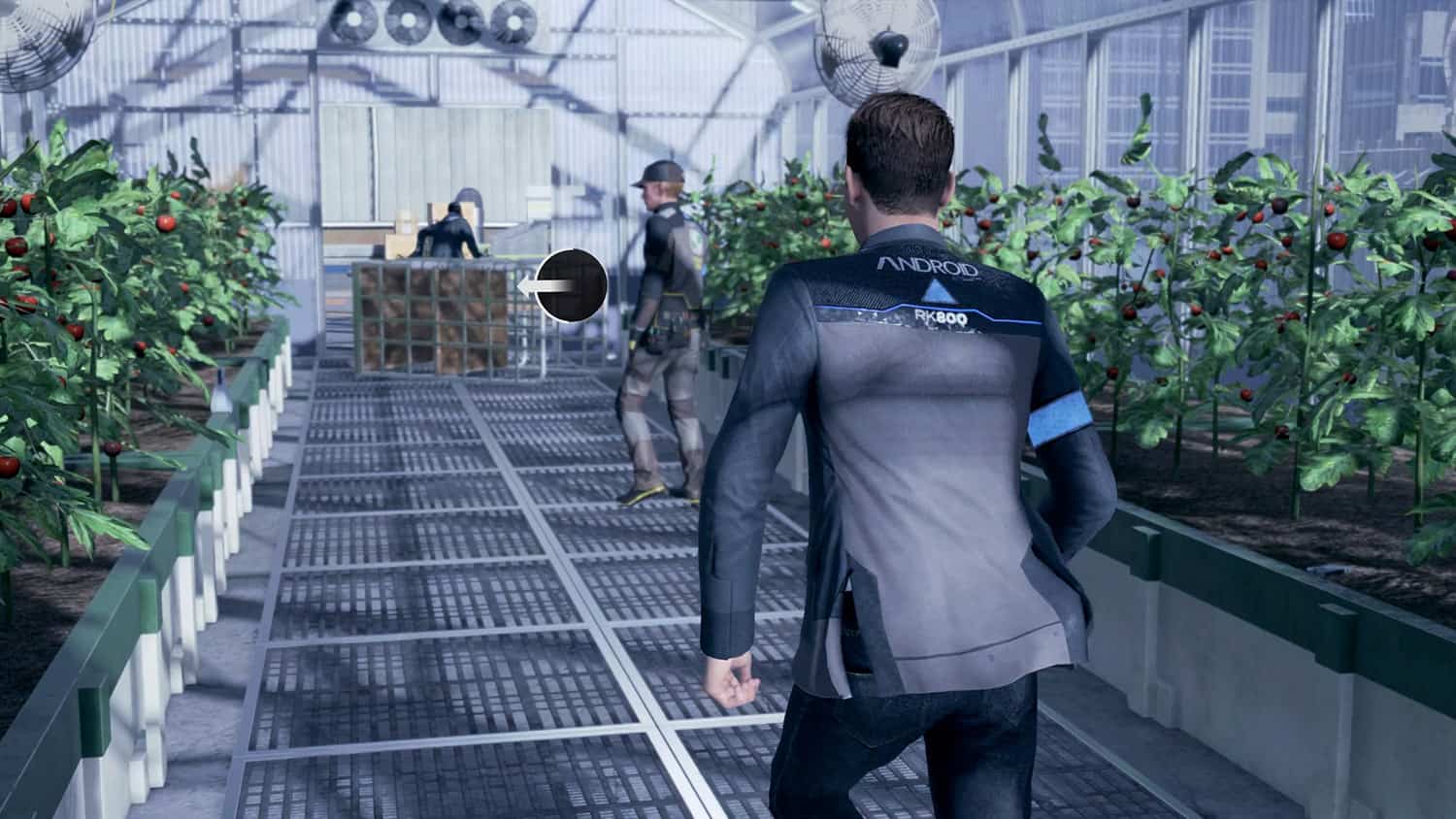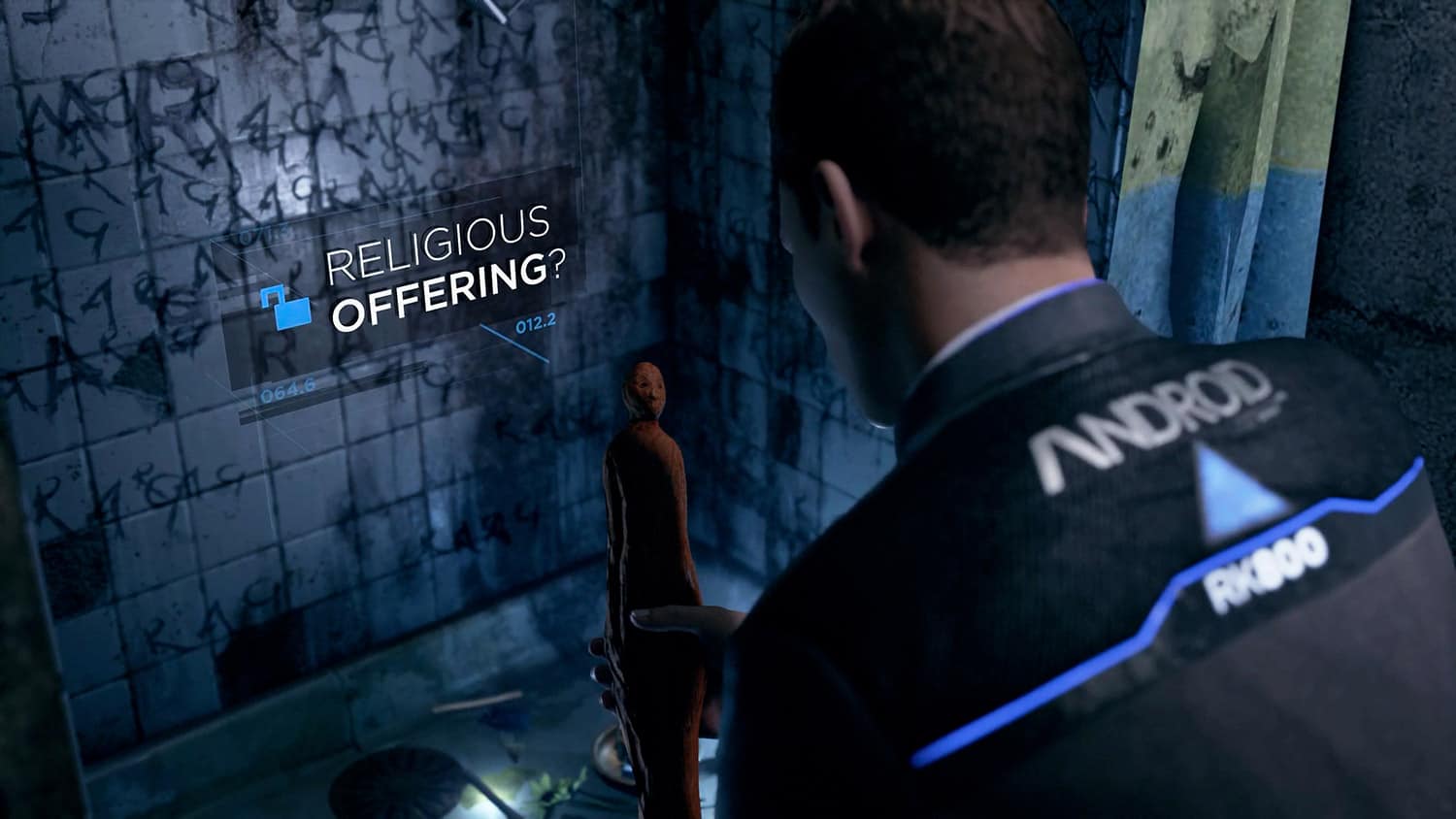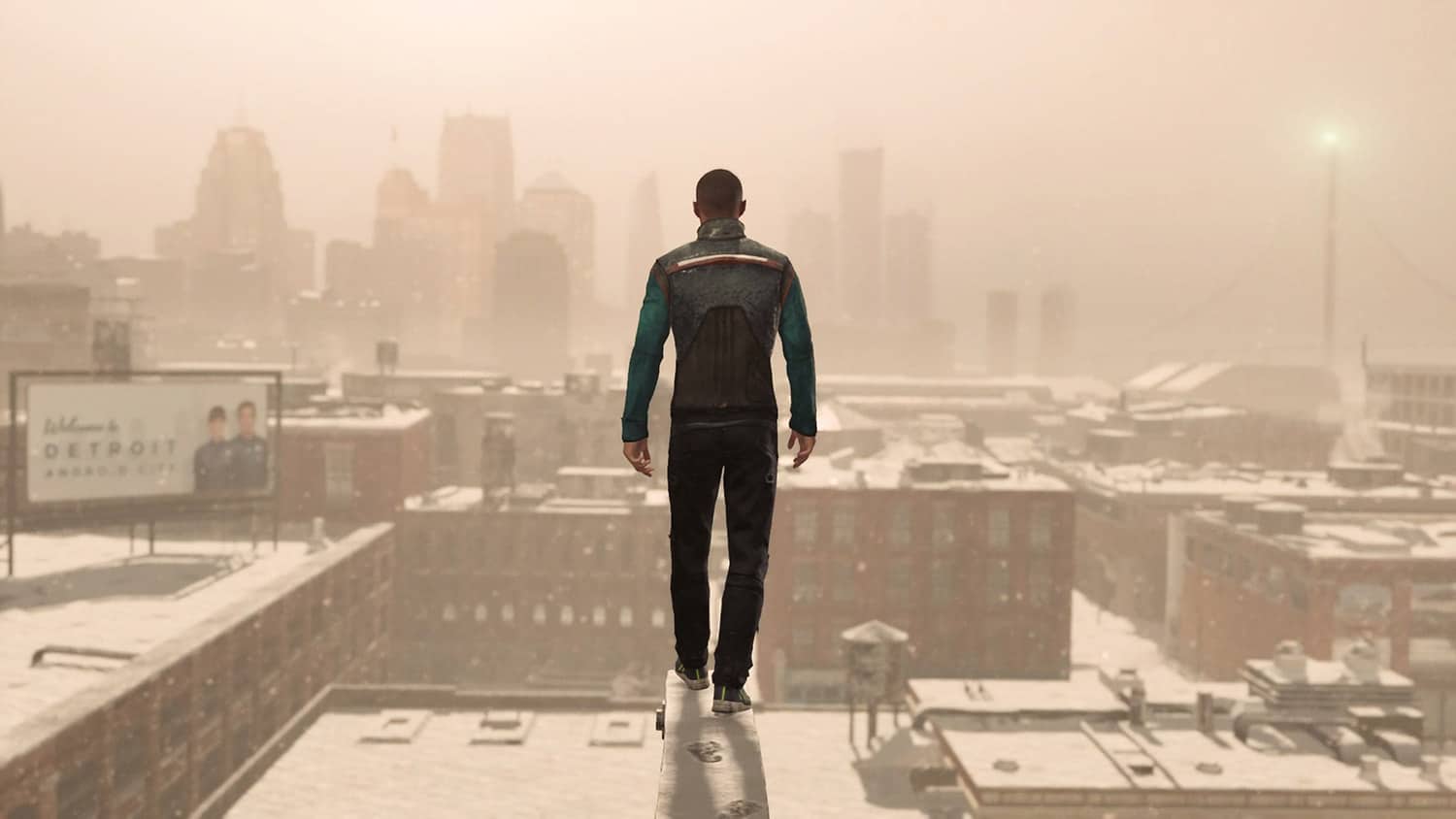Will the android uprising overthrow humanity? It’s a common question, not just in science fiction circles, but of those afraid of the future of technology. It’s also becoming an increasingly real question; the development of robotics, and therefore AI, is only gaining speed. And along with this technology comes the myriad of ethical questions raised by science fiction authors such as Philip K. Dick and Isaac Asimov decades earlier.
I’ve played through Quantic Dream’s 2018 release Detroit: Become Human twice now on PS5, and despite a few moments of cliched writing and unclear controls, it’s one of the best things I’ve played this year. The game taps into these grand questions of what it is to be human, and whether technology can develop the capacity for empathy—and whether we, as humans, want it to.
What’s it about?

Detroit: Become Human follows the path of three androids as they intertwine in a powerful journey of freedom—or captivity—for androids in Detroit City. Kara, a domestic housework android, finds herself on the run with a small child, trying to find a place for freedom and family. Despite feeling like the female narrative was limited to the role of motherhood, the quiet moments as Kara struggles to navigate her safety and that of Alice are some of the most harrowing in the game.
Connor is a detective android, designed to assist the Detroit police with investigations into ‘deviant’ androids—those who have broken free of their programming. He’s played against gruff, alcoholic cop Hank, in what is one of the most overused dynamics in crime fiction—reluctant partners, one a drunk cop, the other a stickler for the rules, overcoming their dislike to become friends. But as their relationship deepens, so too the story moves away from these familiar tropes.

Marcus, played by Jesse Williams of Grey’s Anatomy fame, has probably the most intriguing and original line. He leads a group of runaway androids, and your choices in this narrative have consequences for the entire nation – and all androidkind.
Gameplay
If you haven’t played this style of cinematic game before, they’re quite different to what you might expect from a video game. These are choice driven narratives, determined through your controller movements in timed scenarios. If that sounds boring, it’s not; you’ll be flipping, slapping, whacking the controller like your character’s life depends on it. And more often than not, they do. Even the smallest early decision can have a significant effect on how events play out in Detroit: Become Human.

One quibble I had playing this on the PS5 haptic controller was the lack of instruction in the movements you needed to make in the more advanced player mode. If you’re playing on casual mode, just keep your hands on X and O and that’ll cover 90% of your moves. In advanced mode, there are no instructions on flipping the controller sideways, or how fast you need to make this move. I often found myself at urgent points in the story with the controller not registering the movement, and me freaking out that my characters would die! Hint: if the controller asks you to flip it sideways, do it in one quick movement.
Mind you, the game isn’t particularly difficult. The combat is pushing the correct buttons in quick time events, and even on the advanced mode, I was able to win all my combat scenarios. But beware a bad choice or two…
Storytelling
As I discuss the storytelling, there will be some minor spoilers in this review, so please, use your discretion. I highly recommend playing this game blind before you read anything else. Don’t use guides—stick to your decisions—it’s so worth the wonder and surprise of the story. The game only takes around 10 hours to play, and I came back to the game again and again, hooked on the consequences of my choices.
Spoilers ahead…
The familiar elements of David Cage’s storytelling are there from previous games, particularly if you’ve played Heavy Rain. The crime investigation, the moralistic overtones, the woman held captive by a psychopath in a basement… yet despite moments of cliched writing, the heart of the story is solidly in the right place. I haven’t had such an emotional reaction to a game since The Last of Us; both epic and quiet moments had me shedding tears.
During the game, Marcus has the chance to lead a group of androids to freedom. While Detroit: Become Human urges you towards a pacifist outcome, I took a violent approach in my first playthrough, going on how I felt the characters would respond to the situation. And despite this choice, I wasn’t dissatisfied with the ending—it was powerful and drenched with meaning.

Detroit: Become Human clearly draws on human history for its inspiration to understanding the androids’ plight; there are obvious references to both the civil rights movement and the Holocaust. Androids bear armbands and triangle badges to mark their segregated status, and further along, there are scenes that reflect the terrible genocide in WWII. While this could have easily become tokenistic in the story, the deep empathy players have coming alongside the androids in their struggle makes these moments more authentic and ultimately chilling.
And if you regret your choices in the game, you can always review the choice trees at the end of the level to see how your choices stack up to your friends and the rest of the world. I found this a fascinating insight into the narrative design process, although this could equally throw someone out of the narrative if they don’t want to see the magic behind the machine. Likewise, on replay, you can dip into the story at a certain point if you’d like to try a scene with a different approach, or intentionally fail the game for trophies.
Graphics

The game looks stunning in 4K on the PS5—like many of the backwards compatible releases, I’ve been amazed to see the quality of the facial animations. You can see facial lines, skin textures, pores like they were almost real. Part of the reason the game is so engaging at an empathetic level is how well the acting has transferred into the animations. There’s no uncanny valley here—just a beautifully rendered game which looks spectacular in 4K. My only beef is Hank’s hair—the longer the hair gets, the less realistic it looks in this game.
Something that Detroit: Become Human really nails is aesthetic. I’m a sucker for games with a complete look and feel—see Control—but Detroit carries that corporate CyberLife vibe through all the world-building, and even into the menu design. If there was an award for menu design, Detroit: Become Human would win it. Players face a beautiful android, who asks them to complete corporate surveys and questions as the game progresses.
One such questions is about whether the player is concerned with technological advances such as AI. Me? I’m not afraid of androids. I’m concerned about the power and morals of those who program them.
What’s not to like?
There are things that could be improved about Detroit: Become Human. Little bugbears—like the decidedly unsexy sex club where everyone looks like they’re dressed in sports bras and jocks. I get the need to be respectful, but also, it seems a bit vanilla.
Likewise, your relationship with North feels forced regardless of your choices. It’s hardly a spoiler—you get troubled babe vibes from the day you meet her. But I do like Minka Kelly’s performance here. It would have been interesting to see if you took Josh as a lover if you went the pacifist route, or North as a lover if you went the violent route. Mostly, if you take the pacifist path, North frowns upon your choices but still gets together with you if you so choose.
There are several things left unexplained in Detroit: Become Human—primarily the identity of the android god, Ra9. While it’s a common enough graffiti through the crime scenes of Detroit, the identity of Ra9 or where this concept comes from is never explained. If there’s ever a sequel, I’d love to know more about this android god.

Similarly, Markus gets some Jedi android powers to liberate other androids which stretched the limits of my believability, because it was so inconsistently used by other characters. Also, the nerd in me wanted to know how the programming was being transferred to other androids? Public Wi-Fi?
And finally, I would have loved to see more female characters in the police department—it seemed like a boys’ club despite being set in the future.
Conclusion
It’s worth comparing Detroit: Become Human with Cyberpunk 2077, as both games have similar elements—the crime scene analysis, the cyborg/android sex workers, themes of freedom from corporate surveillance, and whether technology removes our capacity for humanity. Where Cyberpunk 2077 wasted the opportunity to talk about what makes us human on a grand scale, Detroit hits all the right beats—and it’s a much shorter game!
Detroit: Become Human is well worth ten hours of your time. It’s Quantic Dream’s best release to date, and a beautiful game full of heart about what makes us human—and the great virtues of freedom, equality, and family.

Share your thoughts